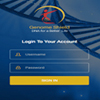Medication: One Prescription Does Not Fit All
Not everyone responds to drugs in the same manner. A drug that is effective for some can have no or partial response, or have Adverse Drug Reactions in others.
"Over 4 billion prescriptions are filled each year; yet 50-75% don’t work as intended"
"Adverse Drug Reactions (ADRs) are the fourth leading cause of death”
"Efficacy rates of drugs have been estimated to be roughly only 50%”
The Solution Is In Your Genes
Pharmacogenomics Demystified
Pharmacogenomics is the study of how a person’s genes affect his response to drugs.
The way a person responds to a drug depends on various factors, the major influence being the genetic makeup of the person. Genetic factors account for up to 95% of drug-response variability and susceptibility. Depending on his genes, a person’s body may break down a drug too slowly or too quickly.
If he metabolizes a drug too slowly, he may be exposed to too much of it, which may result in an adverse drug reaction (ADR). If he metabolizes a drug too quickly, the drug might not affect him at all.
We Believe
In
Personalized Medicine
Genome Shield iPGX Test
At Genome Shield, we are driven by the mission to personalize medicine for our customers.
Genome Shield in collaboration with scientists from leading universities in the US have developed a fast, effective and affordable test called the Genome Shield iPGX Test. This test helps you determine the right drug and its dosage to reduce adverse drug reactions and improve drug efficacy.

Genome Shield iPGX Test
Right Drug. Right Dose. Right Time
Reduce Adverse Drug Reactions and Improve Drug Efficacy
At Genome Shield, patient's DNA is first analyzed using advanced genetic technologies to obtain their unique genetic profile, which is then integrated with our pharmacology knowledgebase using a proprietary algorithm based platform, to provide concrete prescription actions. The prescription information for each drug is presented in an intuitive format using flags (see icons) that indicate 'proceed with normal dose', 'decrease dose', 'increase dose', 'use caution' and 'alternate medication'.


Clinical Implications of the drug in the body and therapeutic recommendations with quantitative dosage adjustment and specific alternate drug medications are also presented.
These recommendations are also provided through a dynamic interactive web and app based platform, besides conventional paper report.

Value Delivered
Through
Our
Research and Innovation
The Genome Shield Advantage
Coverage of Drugs
The Genome Shield Basic test will cover over 100 drugs that constitute 20% of all prescriptions and these cover many of the most prescribed medicines in most clinical specialties.
Information Backed by Credible Sources
 Genome Shield's proprietary knowledgebase is curated by a team of scientists, physicians and pharmacists, and computational decision system developed in collaboration with academic groups at leading universities.
Genome Shield's proprietary knowledgebase is curated by a team of scientists, physicians and pharmacists, and computational decision system developed in collaboration with academic groups at leading universities.
 Only drugs having high level of evidence by having scientific data showing strong association with pharmacogenes are included
Only drugs having high level of evidence by having scientific data showing strong association with pharmacogenes are included
 Genome Shield's prescription recommendations are generated using CPIC, FDA, DPWG guidelines and published literature
Genome Shield's prescription recommendations are generated using CPIC, FDA, DPWG guidelines and published literature
 Our data and knowledgebase are continuously curated and kept up to date, in order to keep up with growing science
Our data and knowledgebase are continuously curated and kept up to date, in order to keep up with growing science
Reports and Drug Searches at Point of Care
Information relating to specific drug for the specific individual can be searched through website or app or will come up in Electronic Health Record at time of prescription

Lifelong Resources at your Fingertips, Anytime, Anywhere
 Each patient and their doctor will have a login and password to see information unique to them, based on their genetic test through website and app, along with a paper report.
Each patient and their doctor will have a login and password to see information unique to them, based on their genetic test through website and app, along with a paper report.
 Personalized recommendations will be continuously updated. The pharmacology knowledgebase is continuously curated to reflect available new scientific development
Personalized recommendations will be continuously updated. The pharmacology knowledgebase is continuously curated to reflect available new scientific development
 They can also access pharmacogenomic consults personalized to them pertaining to drug being prescribed at the point of care
They can also access pharmacogenomic consults personalized to them pertaining to drug being prescribed at the point of care
It’s As Simple As That
Swab, Collect, Test
And
Discover a World of Happiness
iPGX Test Process

Step 1
Doctor
orders test

Step 2
Saliva collected at
doctors office or home

Step 3
Shipped to
Genome Shield

Step 4
Access report
online













